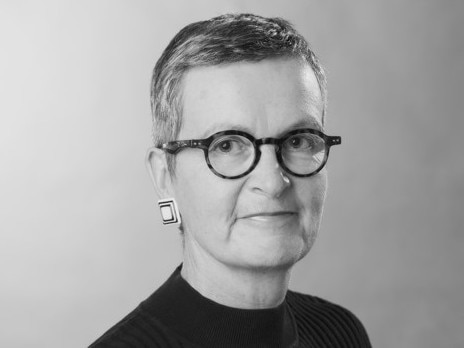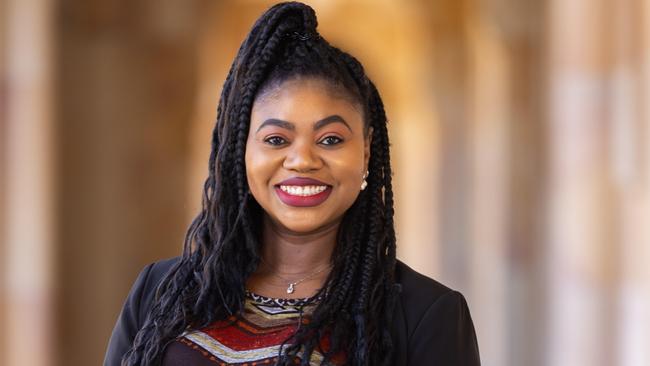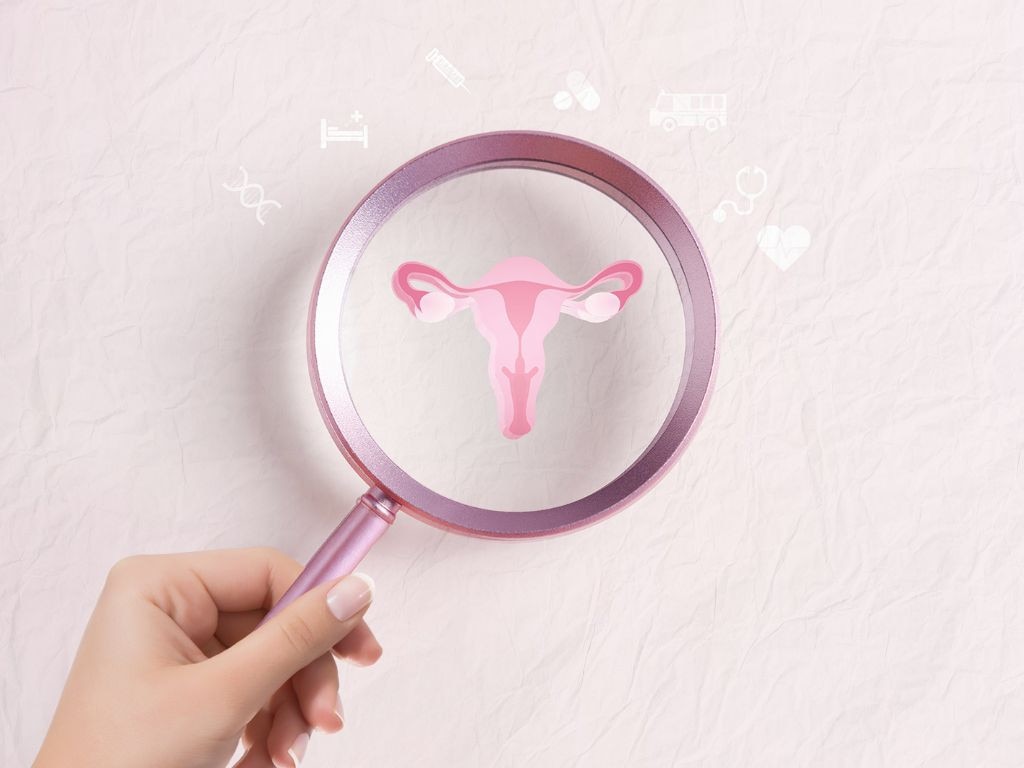Flush with money: the business of menowashing
Social media influencers are pushing an assortment of ‘cures’ for the adverse symptoms of menopause and perimenopause, and it’s leaving experts furious.
You’ve heard of greenwashing. You may have even heard of pinkwashing. But have you ever heard of menowashing?
Sarah White, the chief executive of the organisation Jean Hailes for Women’s Health, is acutely aware of the practice. “It’s basically rebranding products and services to present them as if they address the management of menopause symptoms.
“There’s a huge market in menopause, and there are a lot of companies saying, ‘look I’ve got an – insert service or product here – almonds, supplements, energy drink, laser treatment that will not only help with your menopause, but take inches off your waist’.
“While some products may have benefits, we usually apply menowashing to things like supplements with no evidence of benefit or effect. I’ve seen shampoo and conditioner that’s been menowashed, and there are skin products and even retreats.”
Indeed, when it comes to menowashing, it seems little is off limits.
“My favourite is actually in the UK, an advertisement for chocolate-coated almonds that will help with menopause!”
Almonds do contain vitamins and minerals that can help to support your immune system and lower blood sugar levels and blood pressure. A small handful are considered to be beneficial, especially in menopause.
But the combination of chocolate and almonds already exists in most confectionary aisles of supermarkets. This product added a menopause label and listed the cost to more than $7 for 75g. Then there was the saturated fat count. The daily serving size suggested by the manufacturer for a daily “dose” of the treat included 20g of saturated fat. Saturated fat increases your risk of developing heart disease, with women advised to have as little as possible and to not exceed 16-20g per day.
Women’s health is a burgeoning market and menopause and perimenopause appear to be its golden geese. Estimates of its worth vary but international analysis by Straits Research has suggested the global market could sit around $US17.66bn ($28.3bn) this year and grow to $US27.63bn by 2033.
Online, there is a proliferation of influencers peddling an assortment of “cures” for people who experience adverse symptoms of menopause ranging from simple homemade tonics through to sponsored content or their own line of goods.
While credit should be given, to an extent, to social media for helping to shine a light on menopause, a concern of many doctors is around context. Just because a therapy or strategy has worked for an influencer or celebrity, it does not necessarily mean it will work for the next person or that there is evidence of its efficacy or that it does not come with risks that need considering on an individual scenario.
“If there was a miracle product out there that would help with menopause symptoms, that you could buy over the counter or online, we’d be telling people about it,” said Dr White.
There’s also the potential issue of catastrophising menopause. Around a quarter of women won’t get any adverse symptoms at all, while a quarter will experience prolonged or severe symptoms and the remainder of women will experience mild to moderate effects. Those who do experience adverse effects can do so for five to 10 years.
Martha Hickey is a professor of obstetrics and gynaecology at the University of Melbourne. Earlier this year, she co-authored a series of papers for the prestigious medical journal The Lancet that raised concerns women are not being adequately informed or empowered about menopause and perimenopause. Professor Hickey hopes greater awareness will help women to distinguish between marketing spin and products that may be beneficial.
“Looking at what’s being marketed under the menowashing sort of label, I can’t see anything that is evidence-based in there,” she said. “I’m not suggesting they’re harmful, but there’s potential financial toxicity of people spending money on things, believing that they may benefit them going through menopause.”

When it comes to complementary medicine, there are some vitamins and therapies the Australasian Menopause Society advises may be useful to some women who experience mild to moderate symptoms, although it warns evidence is inconsistent and patients should seek medical advice before their use in case any vitamins interact with other medications.
It says vitamin E “can decrease the number of hot flushes by one per day”, while cognitive behavioural therapy, hypnosis and yoga have been shown to be beneficial for some women.
The supplements market is where money is being made, especially for pre-made commercial blends of herbs and vitamins sold online and in chemists and supermarkets. What irks Professor Hickey is when products are sold targeting menopause when they have no credible scientific backing.
“Women have always been subject to this kind of stuff. You know, pregnancy is another time when there are so many products that have been pushed at women, and I feel like it sort of goes to our insecurities. We don’t like what we should be doing, so we buy something that’s specially designed for menopause. But I can confidently say these things have not been shown to be better than any other known medical products.”
The growth of supplements and herbal treatments online was a topic of concern raised during a Senate inquiry examining “Issues related to menopause and perimenopause”.
In a submission to the menopause inquiry, the Australian Medical Association wrote that over-the-counter alternative treatments “are not subject to the rigorous testing for content, safety and effectiveness that prescription treatments are subject to”.
The Monash Centre for Health Research and Implementation said: “The use of unproven and ineffective (complementary and alternative medicine) fuelled by misinformation on social media and the lack of counter-balancing accessible evidence-based information leads to a major waste of money for women and delays use of effective treatments.”
The Department of Health and Aged Care has revealed that in the 2023-24 financial year, more than 4800 removal requests were issued to various digital platforms for unlawful advertising of therapeutic goods.
While it was not able to define how many were related specifically to menopause marketing, the inquiry noted that “the department advised a number of these removals were for complementary/herbal medicines that would have included those targeted at menopause and perimenopause treatments”.
The Senate committee recommended the Therapeutic Goods Administration continue to monitor the advertising of alternative medicines and treatments and take action as appropriate. It also recommended the Department of Health and Aged Care consider reviewing the labelling of TGA-approved medicines.
Foluke Abigail Badejo is a doctor and lecturer in marketing at the University of Queensland, specialising in vulnerable consumers, harm reduction and public health. Her research has been published in multiple industry journals.
She said while the global advertising industry was largely “self-regulated”, Australia was covered by consumer law, enforced by the ACCC.
“The premise is that all advertising must be truthful, accurate, they must not mislead. Of course, we know that doesn’t always happen. They kind of skirt around these laws by having their little disclaimers in fine print.
“You can see that from how vitamins are marketed, for example, ‘supports healthy immune function’. They can’t actually say that it will cure this or it will cure that, because then that would be in violation of the Therapeutic Goods Act.”

A trip to a local chemist retailer supports this. One bottle of supplements labelled as “Menopause Support” has smaller writing stating it contains sage which is “traditionally used in Western herbal medicine to help decrease night sweats associated with menopause”.
As for the marketing of existing products for “menopause”, Dr Badejo said the practice was concerning, particularly if it included a higher price point than it otherwise would.
“It’s highly unethical when you consider the fact that some of these products that have been repackaged for menopause, they actually have no true added benefit. It’s really just exploitation of a vulnerable consumer group and I think more needs to be done to regulate that space.”
As organisations such as Jean Hailes and reputable doctors including Professor Hickey join the chorus of people calling out menowashing, some influencers and businesses are pushing back and claiming the title of menowashing is simply a new tactic being used to silence discussion about menopause.
That upsets Dr White. “That’s a really, really cynical appropriation of legitimate concerns from women. It kind of makes me angry,” she said.
“We’ve never had a better time to be talking about women’s health issues and identifying the gaps in care we’ve got, and it’s been amazing. Then you have these commercial companies that are stepping in and hijacking the narrative.
“Whenever there’s a criticism around menowashing or ‘you haven’t got evidence for that’, they immediately try to appropriate that whole ‘you’re trying to shut us down’. No, we’re trying to shut down predatory marketing that is targeting vulnerable women. Oh, it makes me furious.”





To join the conversation, please log in. Don't have an account? Register
Join the conversation, you are commenting as Logout